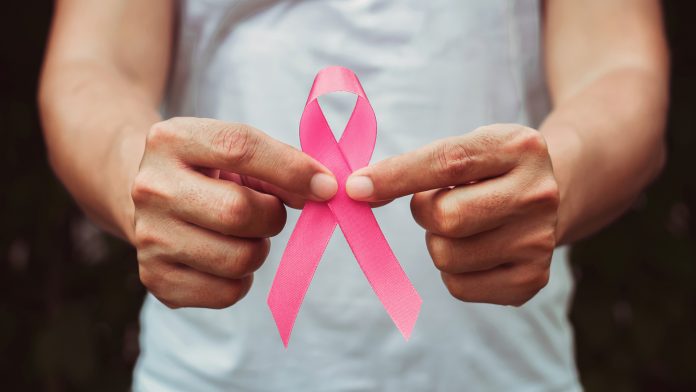
Breast cancer in men is potentially associated with male infertility, a new study from The Institute of Cancer Research suggests.
The research team interviewed 1,998 males from England and Wales who were diagnosed with breast cancer, discovering that the risk of invasive breast cancer in men may be linked to self-reported infertility. The results identified that 112 (5.6%) of the study participants self-reported infertility, with a further 383 (19.2%) having no children.
The study is published in the open-access journal Breast Cancer Research.
Long-term impacts of breast cancer in men
Breast cancer in men is far less common than in women, with estimates showing that around 350 men are diagnosed with the disease in the UK each year, whereas there are 55,000 cases in women. Breast cancer in men accounts for 1% of breast cancer cases. Moreover, how the disease affects male infertility has only been investigated in small studies, with only one suggesting a potential association between the conditions.
The Institute of Cancer Research team examined the possible link between breast cancer in men and self-reported infertility by interviewing 1,998 males under 80 years old diagnosed with breast cancer between 2005 and 2017. The research compared these with 1,597 males as a control group that were not blood relatives. 80 (5%) of the men in the control group reported infertility.
The risk of invasive breast cancer tumours, which are cancerous tumours that spread beyond where they initially formed, was significantly associated with male infertility in 47 (2.6%) individuals with breast cancer compared to 22 controls (1.4% with self-reported infertility but no breast cancer. The team did not observe any significant association between the risk of breast cancer and a partner’s infertility or when the source of infertility was unknown.
The team identified that 383 males with breast cancer did not have children, substantially more than the 174 males in the control group who did not have children. However, the researchers explained that not having children may not solely be down to male fertility as men may not choose to have children for a range of cultural and social reasons.
In 160 individuals with in situ breast cancer tumours – cancerous cells that do not continue to spread beyond where they first formed – the associated risk of cancer with infertility or no children was not significant compared to the 1,597 controls.
Michael Jones, the co-author of the study from The Institute of Cancer Research, said: “Our data reveals that there may be an association between male infertility and invasive breast cancer in men.”
Influential factors
The team performed sensitivity analyses to control for smoking, alcohol consumption, family history of breast cancer, and liver disease, finding no evidence that these factors impacted the results. The researchers did not control for obesity; however, they did exclude data from 11 males with Klinefelter syndrome, nine with prior cancer, 29 males that were severely obese, and 169 with testicular diseases. Three of the participants who were born female were not included in any of the analyses.
Due to the infertility being self-reported, the researchers explained that there is a chance of misclassification, as infertility could be due to the female member of the couple. Additionally, men may not report children outside of a marriage or ones they are unaware of, or they may have decided to not have children out of choice. The researchers explained that validating infertility with medical records could reduce recall bias in future investigations.
Jones concluded: “The causes of breast cancer in men are largely unknown, partly because it is rare and partly because previous studies have been small. The evidence presented in our study suggests that the association between infertility and breast cancer should be confirmed with further research, and future investigations are needed into the potential underlying factors, such as hormone imbalances.”









